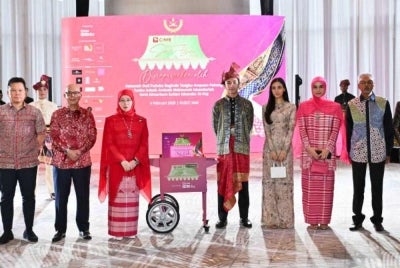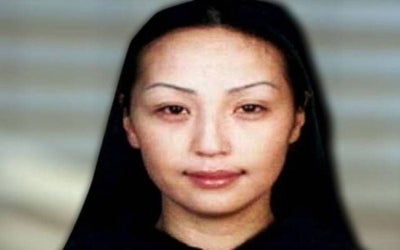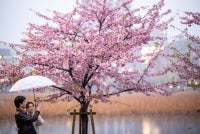"Sexist, false narrative" to say Chinese women more progressive than Malay, Indians, says Singapore group
The kebaya.societe told a famous Singapore-based fashion designer Priscilla Shunmugam that the term progressive may mean differently to different people.

Priscilla Shunmugam - pic sourced from todayonline
An Instagram post told Priscilla Shunmugam, the fashion line for Ong Shunmugam, that the term progressive may mean differently to different people.
"Progressive for Malay women may not be about shaking hands with men or wearing mini skirts.
"Progressive is a mental state of mind - not physical," it said.
It further wrote that the statements made by Priscilla were sexist and reduced and undermined the efforts of women who have progressed.
This comes after Priscilla in a recorded zoom posted at kebaya.societe Instagram page had allegedly said historically, and even today, Chinese women have progressed significantly faster and further than their Malay and Indian counterparts.
"This is not a modern-day phenomenon," she said, adding that this is just how it has been since the 60s.
"In fact, for example, Chinese women were the first Asian women to shake hands with men.
"Culturally, it was acceptable for Chinese women to shake hands with men long before it was socially acceptable for Indian and Malay women," said Priscilla.
She further added Chinese women were also quick in adopting western dressing. "The Chinese women were the first culturally to adopt western dressing, whether the dresses or mini skirts," she said.
This went hand in hand with Chinese women joining the workforce whether work in a factory or as a teacher," she added.
Priscilla further commented, "We need to ask ourselves were Malay women allowed by their husbands or fathers or brothers to dress in a certain way to go out to work.
"To perform specific duties, they hadn't done (before). And we can also ask the same on Indian women," she said.
She went on to say that the answers on fashion come from there.
However, kebaya.societe shot down Priscilla's views stating Malay women were educators, entrepreneurs and businesswomen even in the 1940s.
The page said these women empowered other women to do the same.
It further stated that Malay women had adopted European designs while incorporating traditional silhouettes and textiles.
"Narrative like yours is anything but progressive," the statement on the page said.
Download Sinar Daily application.Click Here!















